Our History
What began as one pastor’s effort to preach the good news through radio in a small area of Michigan has today grown into a media ministry that spans four continents and proclaims Christ as Savior in over 80 different languages.
In 1944, the Rev. Howard Teusink, then pastor of the Trinity Reformed Church of Kalamazoo, Michigan, stayed home one Sunday morning, too sick to preach. From his bed he turned his radio dial, searching for a gospel broadcast. After listening for some time, he became convinced of the need for a radio broadcast with a sound, well-balanced biblical witness.
At the urging of Rev. Teusink’s consistory, the ministry of Words of Hope officially began under the name “Temple Time.” The ministry’s purpose statement was: “to preach through broadcasting Jesus Christ as the only Savior.”
The first broadcast of the new ministry aired on July 22, 1945, from the Central Reformed Church of Grand Rapids, Michigan. Dr. William Goulooze, then Professor of Church History at Western Theological Seminary in Holland, Michigan, presented a message titled, “Consider Christ Jesus.”
Preaching Christ as Savior remains the core goal of the ministry of Words of Hope today, as we continue to expand our reach into new countries and languages, utilizing new media formats as they become available.
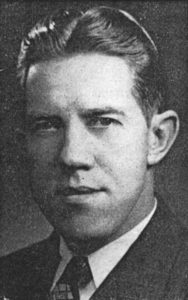
Within months after its first program, Temple Time becomes the official broadcast of three regional synods in the Reformed Church in America: Michigan, Chicago, and the West. A large number of pastors and professors are occasional speakers on the early Temple Time broadcasts from 1945-1949.
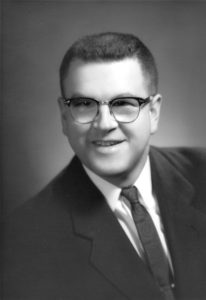
Rev. Harland Steele is appointed as the first regular broadcast minister. He serves until 1952, preaching on the radio and providing executive leadership for the ministry.
The first Temple Time foreign-language broadcast is aired in Japan with the help of Reformed Church missionaries. Soon after, broadcasts are added in Chinese, Russian, and Spanish. Temple Time also begins producing a devotional booklet, titled "Prayer Time".
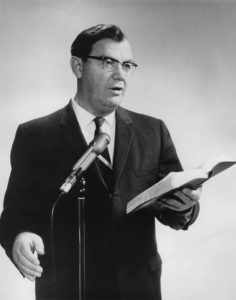
Dr. Henry Bast, pastor of the Bethany Reformed Church in Grand Rapids, becomes the next broadcast minister for Temple Time. During his tenure from 1952-1972, he continues to serve at Bethany Church and, for a seven-year period, as Professor of Preaching at Western Theological Seminary.
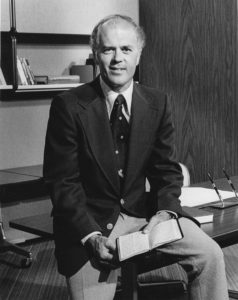
Dr. Henry Bast is succeeded by Dr. William Brownson as Temple Time’s President and Broadcast Minister.
The name of the ministry is changed from “Temple Time” to “Words of Hope.” In many parts of the world, the word “temple” is associated with non-Christian religions. Words of Hope is chosen as the new name in order to point to what the gospel of Christ offers in a way that makes sense in an international context. The decision is made that Words of Hope will focus primarily on missionary radio, while maintaining a more modest presence in North American radio.
Words of Hope’s daily devotional resource also changes its name from "Prayer Time" to "Words of Hope".
Words of Hope forms partnerships with organizations like Trans World Radio and Far East Broadcasting Company. The goal of these partnerships is to blanket the world in missionary radio so that all people might have the opportunity to hear the words of Christ in their own languages.
Words of Hope is awarded the International Broadcast Award. Maintaining excellence in broadcasting, even while employing many broadcasters in order to reach a growing number of people who speak small tribal languages, remains a priority of Words of Hope. Attractive music, multiple voices, and quality recording equipment ensure that many people who happen upon the broadcasts while turning the radio dial stay to listen.
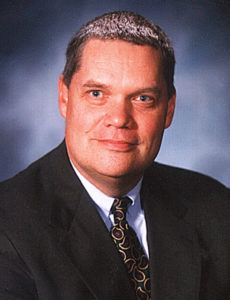
Dr. William Brownson retires and is succeeded by Rev. David Bast as Words of Hope’s President and Broadcast Minister.
In early 2001, the Words of Hope staff and Board of Trustees complete a careful and thoughtful strategic planning process. This process leads to a sharpened vision for the future of the ministry, including the following goals: 1) to add new broadcast languages, 2) to expand and enhance current broadcast languages, and 3) to increase financial reserves.
These goals continue to shape Words of Hope’s efforts. Many new languages have been added in places like Türkiye, Iran, India, and Niger, and more are added each year. We consistently seek opportunities to air our programs on new stations worldwide so that more people can hear the programs we produce. Financial reserves have been invested to insure that Words of Hope has the resources to continue proclaiming the gospel for many years to come.
Words of Hope pursues a strategy of moving closer to the audience—that is, producing programs from within the target audience and airing them on local stations wherever possible, eliminating the need for extensive translation work. Producers and broadcasters are now chosen from inside a target audience. They are trained, equipped, and financially supported to share the gospel through radio with their own people in their own language.
As Words of Hope continues to expand the ability to minister from within international target audiences, recording studios and facilities are built in many locations around the world.
Words of Hope adopts the official tagline: “Good News. No Boundaries.” International broadcasts continue to increase in number, reaching into Uganda, South Asia, Albania, and beyond.
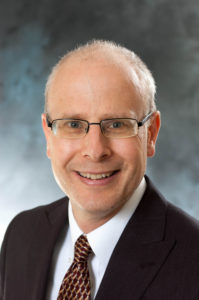
Rev. David Bast retires and is succeeded by Rev. Jon Opgenorth.
Radio remains the medium of choice for much of our outreach work, as it is the most popular and accessible communication tool in many of our outreach locations. As portions of our target audiences move into utilizing more modern technology forms, we are making the transition with them. Today, in addition to radio, Words of Hope shares the good news of Christ through television, podcasts, recordings on MP3 players, smartphone apps, and more.
Our new tagline "Good News. All Ways."
